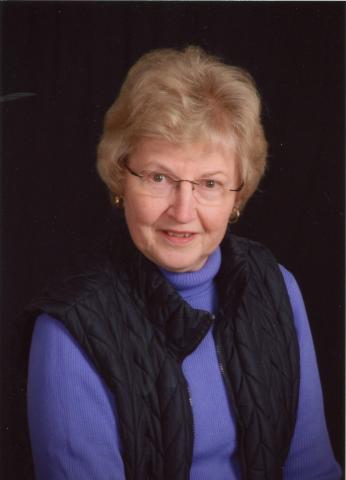Mercyhurst alum Rita Bajura reflects on leading NETL, breaking barriers in STEM

Rita Strobel Bajura, a proud Chemistry major from Mercyhurst's Class of 1963, was celebrated with warmth and admiration as the inaugural director of the National Energy Technology Laboratory (NETL) during its 25-year anniversary event on Dec. 5, 2024, in Morgantown, West Virginia.
Though now retired, Bajura was honored as the trailblazer that she is: the lab’s first director, the first woman to lead a national Department of Energy (DOE) laboratory, and a pioneering advocate for women in STEM, inspiring generations of women to aim high in science and leadership roles.
Bajura’s journey with the DOE began in 1980 at the energy technology center in Morgantown. In 1995, that center merged with its counterparts in Pittsburgh and Tulsa, Oklahoma, and she was appointed director of the combined organization. In 1999, the lab was elevated to national lab status and named NETL. Her leadership skills and vision earned her the distinction of being this national lab's very first director, overseeing critical operations in Morgantown, Pittsburgh, and Tulsa.
NETL continues to thrive in its mission to tackle America's energy challenges, advancing technologies to harness fossil fuels like coal, natural gas, and oil while striving to reduce environmental impact. Today, it spans locations across the country, from Oregon to Alaska to Texas, embodying Bajura's legacy of innovation and dedication.
At the anniversary celebration, Bajura reflected on the lab’s extraordinary progress over the past 25 years. She was especially moved to see a strong female presence among the staff and scientists, a reminder of how far women have come in science and technology.
Bajura’s own journey began in her hometown of Erie, where she thrived at Mercyhurst College, then an all-women’s school. Though her heart was set on engineering—a program Mercyhurst didn’t offer—she embraced Chemistry with the encouragement of two exceptional mentors, Sister Mary Charles Weschler, RSM, and Sister Mary Matthew Baltus, RSM.
“They were amazing teachers—so dedicated and truly wanted every woman to excel,” Bajura fondly recalled.
Her natural inclination toward fixing and problem-solving shone early. “Growing up, I was the kid who fixed everybody’s bike on the block,” she said.
After college, Bajura married Richard Bajura, an engineering professor at West Virginia University and had two children. It was a pivotal moment when her toddler-age daughter Elizabeth remarked “When I grow up, I want to be a mommy just like you.”
While touched by the compliment, Bajura wanted to show her daughter—and her son, Michael—that life held boundless possibilities. Her determination led her back to school. She earned her master’s degree in engineering from WVU in 1979 and then began her remarkable career with the DOE.
As a trailblazer in STEM, Bajura offers wise advice to the next generation of women pursuing scientific careers: “Do your homework. It’s not a free ride. You have to put in the effort and learn to balance work and family life if you want to excel.”
Rita Strobel Bajura’s story is one of determination, courage, and grace—proof that following your passions can pave the way for others and inspire change in the world.